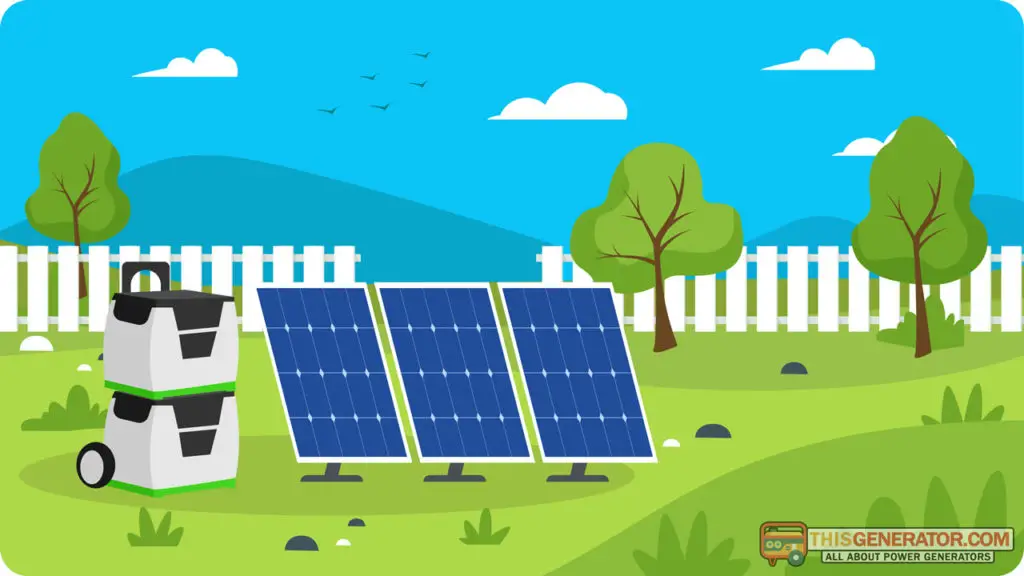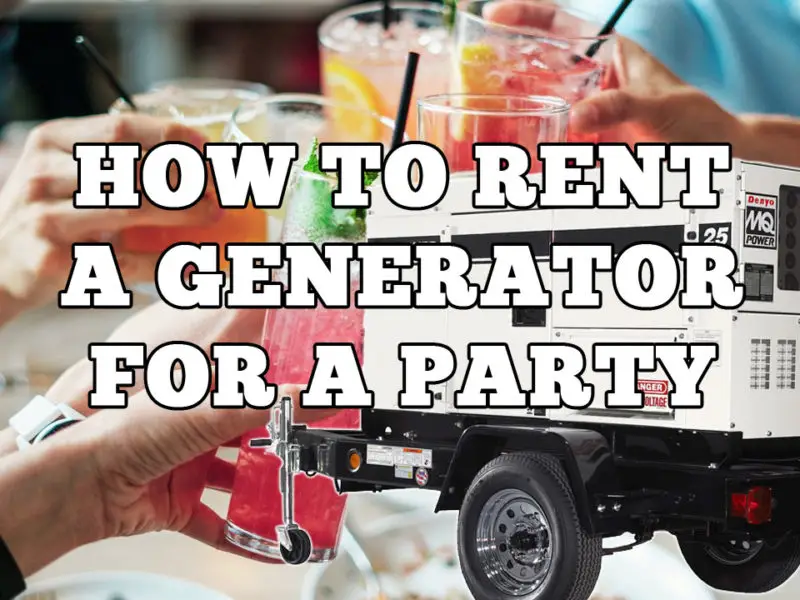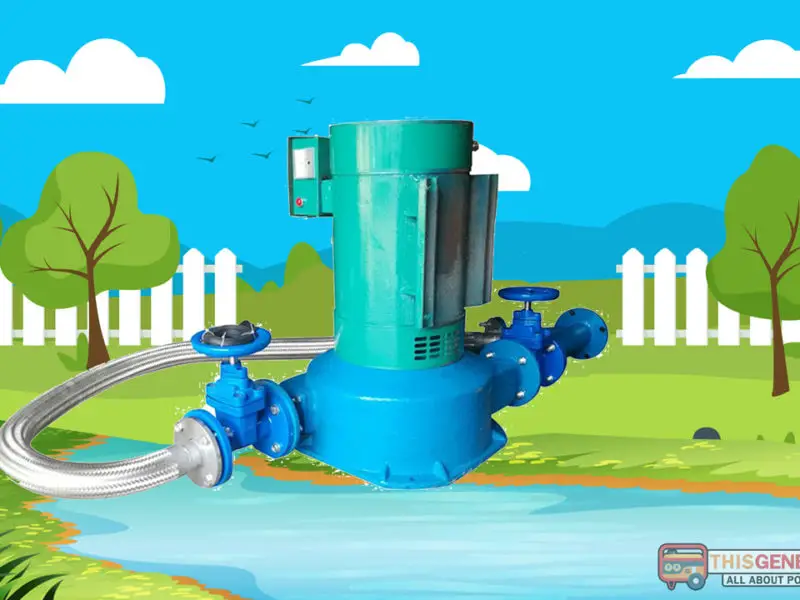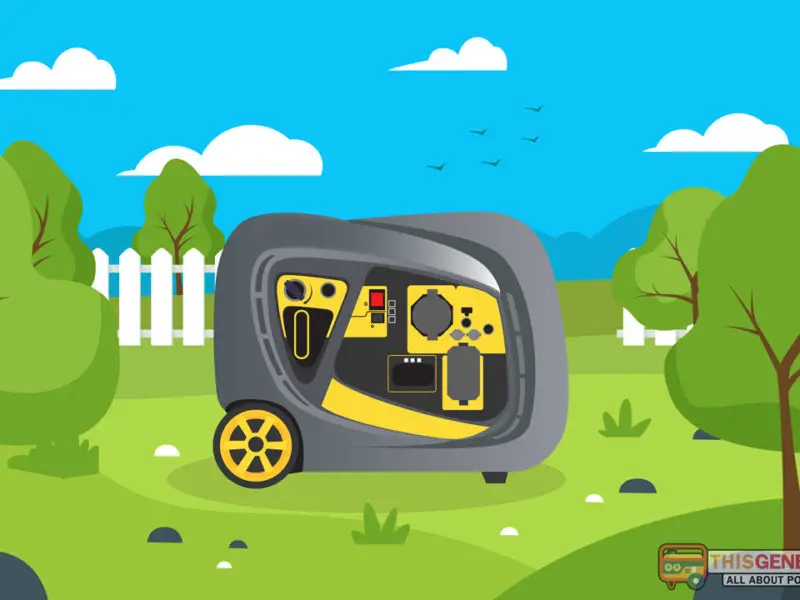If you’re a fan of backup generators, you’ll love the portable solar generator. As the name suggests, this category of generators uses solar power to generate electricity.

As such, you don’t have to worry about purchasing fossil fuels, such as natural gas or propane for your generator. Consequently, they are also more environmentally friendlier than other generator types. The absence of fossil fuels also makes solar generators less of a fire or poisoning hazard.
So, let’s dive right in to find out how solar generators work, the benefits and drawbacks, and other important considerations when shopping for a solar generator.
- Power on the Go: Weighing at 5KG only, the Jackery Explorer 300 Plus Portable Power Station with a 40W solar panel is lightweight to carry, with total weight equivalent to 2 Macbooks. It’s ideal for...
- All-round Safety: By adopting advanced lithium technology, the Explorer 300 Plus is highly temperature resistant - cells operate efficiently and safely, even at 45℃. Max safety is achieved,...
- Diverse & Fast Charging: Charge from the sun as fast as possible. Only 4 hours is taken for the solar generator to become fully charged via convenient connection to a SolarSaga 100W Solar Panel....
- 🌍【Portable Generator with 60W Solar Panel Included】with a 280Wh superior lithium-ion battery pack, ZeroKor 300W power stations are powerful enough to charge...
- 🌍【Multiple Charging outlets for camping gear with SOS Flashlight】With 2* 110V/300W Max AC outlets(pure sine wave ) , 1* DC port (9V-12.6V/10A max ), 3* 5V/3A MAX USB ports, 1*quick charge USB...
- 🌍【Multiple Charging Optional, Solar Panel 60W Included】ZeroKor portable laptop charger power bank can be recharged by wall AC outlet, DC5521 Solar Panel (Portable Power Station built-in MPPT),...
What’s a Portable Solar Generator?
Technically, a solar power generator is any system that runs off solar power to produce electricity. However, more commonly, the term refers to portable power stations that use solar panels rather than fossil fuels to generate electricity.
Solar power generators use solar panels to capture the sun’s energy, which they store in batteries. In the event of a grid failure, the batteries generate electricity to power the intended application, such as your home or RV.
How Solar Generators Work
Solar generators convert sunlight into direct current (DC) electricity which is then passed to a charge controller and then to your appliances and other applications. To best understand the working process, we need first to understand the components.
Solar Generator Components
A solar generator system comprises several parts that work together harmoniously to generate electricity. These parts include;
1. The solar panels
Solar panels are the basis of any solar generator system. The panel (or panels) turn sunlight into electricity, stored in batteries for future use.
2. Solar battery
Almost as important as solar panels are solar batteries. Solar batteries are storage units where electric current from the panels is stored. There are four main types of solar batteries, i.e., lead-acid, nickel-cadmium, lithium-ion, and flow batteries.
3. Charge controller
We’ve already mentioned the charge controller but didn’t clarify its function. The charge controller is an electrical device that sits between the solar panel(s) and the battery bank to prevent batteries from overcharging by limiting the rate of battery charging. It also preserves the battery’s life by shutting down the system if stored power drops by more than 50% of capacity. This protects the battery from a complete drain.
4. The inverter
The inverter turns direct current (DC) collected from your solar panels into alternating current (DC). The reason is that most home and commercial devices and appliances run on AC. A few, such as some lighting systems, may use direct current from the batteries. However, electronics, such as your laptop, phone, and TV, need AC power. Thus, the inverter sits at the end of the circuitry, linking the solar system to the home’s wiring system. You need one for all solar systems above 5.0 watts.
FAQ: Is Having a Portable Generator Worth It?
How the Solar Generator Works
Now that we understand the parts, let’s discuss how the solar generator works. As we’ve seen, solar generators essentially capture the sun’s radiation, known as the electromagnetic spectrum, and convert it into electricity. But you might be wondering exactly how that happens. It’s not that complicated.
Solar generators and solar power systems, in general, rely on photovoltaic technology. When the sun shines onto solar panels, photovoltaic (PV) cells within the panel absorb the energy.
However, the PV cells have an internal electric field. When the electrons within the electromagnetic spectrum enter this field, they move in response to the field, causing an electron flow – essentially an electric current.
This current then flows through wires from the solar panel, through the charge controller, into the battery, where it’s stored.
Batteries
Wondering how solar batteries store electric current? Well, batteries don’t store electricity. You cannot “capture” and store electricity. Instead, rechargeable batteries convert current into chemical energy, which it stores in an electrolyte. An electrolyte is a liquid or gel that can be decomposed by electrolysis.
Batteries have two electrical terminals to facilitate electrolysis – the anode (negative electrode), which releases electrons, and the cathode (positive electrode) that acquires electrons from external circuits.
During charging, electrons generally move from the cathode to the anode, where they are stored, thus increasing the electrolyte’s chemical potential energy. This way, the battery is charged. Once charged, the battery can be disconnected and the charge stored for future use.
However, when in use, the electrons flow from the anode to the cathode, producing an electron flow that constitutes an electric current. This current exits the battery via the cathode and is tapped into wires that transfer it to the control panel for supply to the home or the inverter.
It’s worth noting that whenever electrons flow in one direction, ions (positive charges) flow in the opposite direction to create balance and maintain a sustainable, rechargeable system.
Once it leaves the batter and enters the inverter, the direct current (DC), typically 12V, is transformed into an alternating current (AC), typically 120V or 240V, using a transformer.
Comparison table of recommended Solar Power Generators
Below are 6 examples of great solar power generators.
Benefits of a Solar Power Generator
Portable Solar Generator has become very popular among consumers, both for domestic and commercial applications. Here’s why;
1. Free fuel from the sun
This is, without doubt, the biggest advantage of solar power generators over fossil fuel generators, such as diesel generators and gas generators. When you invest in a solar-powered generator, you’re guaranteed free fuel from the sun for life.
2. Clean, renewable energy
Many people who opt for solar power also do so for its clean, renewable qualities. Solar generators don’t put out any exhaust gases, unlike propane generators and other fossil-fuel models that involve combustion processes that emit environmentally degrading waste gases, such as carbon dioxide and carbon monoxide. We consider it as the cleanest form of energy.
3. Quiet operation
Generators are known to be noisy – except for solar-powered models. Unlike fossil fuel generators, a solar generator doesn’t include moving parts or turning engines with loud shafts and pistons. The exhaust system in fossil fuel engines can be louder than a tractor. But solar generators are hushed.
4. Low maintenance
Finally, solar generators are attractive for their low maintenance. Although you still need to check the system periodically to ensure everything is working perfectly, modern solar systems use maintenance-free batteries that can work for many years without any issues. Additionally, the panels, charge controller, and inverter are also essentially maintenance-free.
Solar Generator Downsides
Unfortunately, solar generators aren’t without fault. The following are a few issues to keep in mind in case you decide to get one;
1. High upfront costs
The main reason most people haven’t installed solar generators yet is the high upfront costs. Actually, the average cost of a gas generator is $1,000. However, a standard solar generator system costs at least $2,000. The only silver lining is that the low running costs can allow you to recoup the initial costs within a few years.
2. 100% reliant on the sun
This is also a significant challenge and the primary reason solar power generators aren’t always practical. Since the system is 100% reliant on solar energy, regions with little or no sunshine the entire year are out of the equation. Under such circumstances, a gas generator or any other fossil fuel unit becomes much more practical.
Top Considerations When Shopping for a Portable Solar Generator
You’re probably already thinking about price, and you’re not wrong. You should always shop within your budget. Find out how much you’re looking to spend on the generator and then go shopping. However, the following factors are just as important when shopping for a solar generator;
1. Purpose/application
Why are you buying a solar generator? What’s the intended purpose? Are you shopping for a small portable solar generator as a power source for your boat? Or are you trying to replace your home backup power system? In conclusion, knowing your objectives will help you set the right budget and choose the right generator that fully fits the purpose.
2. Power requirements
Determining your power requirements becomes a little easier once you’ve outlined your purpose. First, list down all the appliances and equipment you’ll likely use on the generator and calculate the total running power in watts. Then calculate the starting power, also in watts. The total running wattage plus starting wattage will tell you how much electricity you need from the solar system.
3. Sizing the generator
Once you know how much power you need, you can now choose a generator size. Fortunately, generators are sized in watts, which should make your work very easy. For instance, a 500-watt solar system generates 500 watts worth of electricity or 500 watts per hour. You want a size slightly larger than the total in #2 above. HVAC experts recommend that you get a size 20% above your power requirements.
4. Battery storage capacity
Remember that the battery directly impacts how much power is available for your use at any given time. The bigger the battery capacity, the more power you have in storage. This will also determine how long you can use the generator. Most solar batteries are rated in watts, too, for easy pairing with panels. If not, just remember that power (watts) = current (amperes) x voltage (volts).
5. High-quality components
Finally, don’t skimp on quality. This is very important as solar generator systems are available in various options and from multiple companies. We strongly recommend that you go for a brand you completely trust. Additionally, ask for models with quality parts. Both the charge controller and inverter must be durable enough, and the panels should have a substantial warranty.
Recommended NEW Solar Power Generators to buy
With solar charging panel, these power generators can achieve maximum charging efficiency. Additionally they can be easily charged through high-efficiency solar panels to provide environmentally friendly clean power. (Please be informed that Solar Panel are not always included in the recommended product and need to be purchased separately as an add-on)
- 🌍【Portable Generator with 60W Solar Panel Included】with a 280Wh superior lithium-ion...
- 🌍【Multiple Charging outlets for camping gear with SOS Flashlight】With 2* 110V/300W Max...
- 🌍【Multiple Charging Optional, Solar Panel 60W Included】ZeroKor portable laptop charger...
- EXCELLENT COMBINATION: The combination of MARBERO solar panel 21W and MARBERO power station M82...
- COMPLEMENTARY BACKUP POWER: You can use solar panels to charge power supply and other devices...
- UNINTERRUPTED POWER: No longer have to worry about losing power in your home or not being able...
- Power on the Go: Weighing at 5KG only, the Jackery Explorer 300 Plus Portable Power Station...
- All-round Safety: By adopting advanced lithium technology, the Explorer 300 Plus is highly...
- Diverse & Fast Charging: Charge from the sun as fast as possible. Only 4 hours is taken for the...
Summary
That’s it. Now you know the basics of a solar-powered generator. We just want to stress the need for proper maintenance. Make sure to dust the system regularly to prevent the buildup of dirt. Also, schedule yearly inspections to catch and fix any issues, such as loose wires early.












